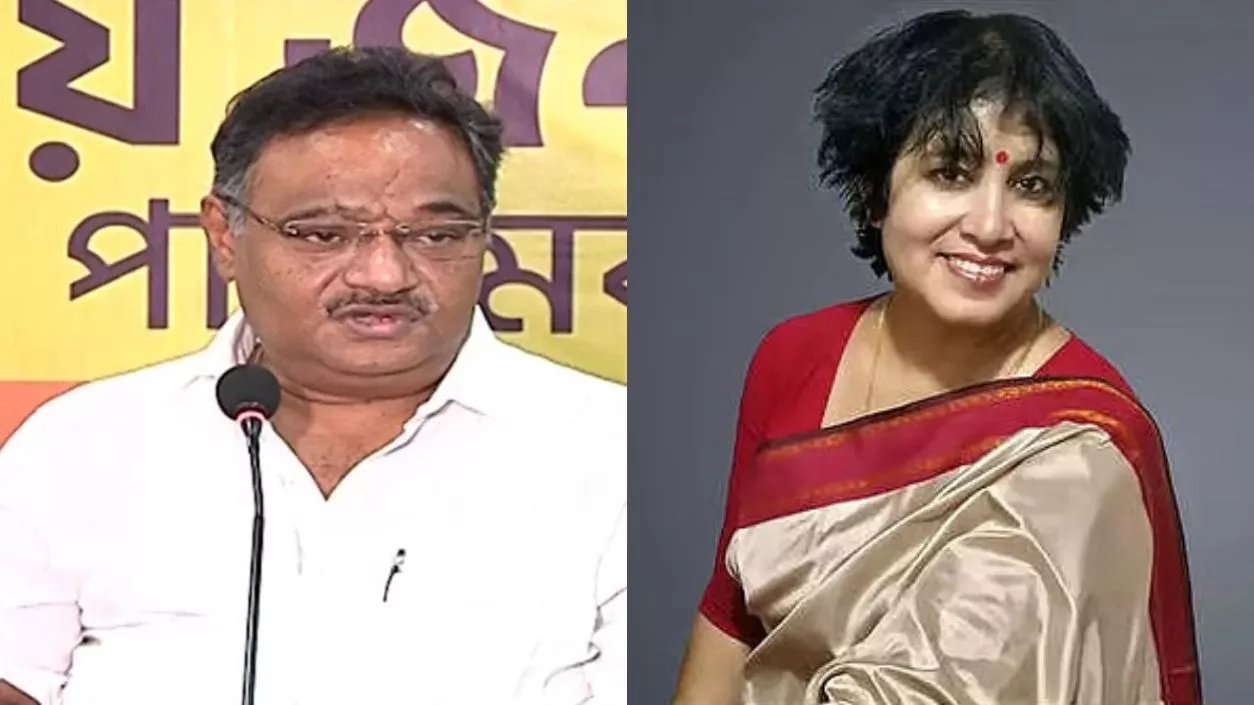.gif)
.gif)

BJP Rajya Sabha MP Samik Bhattacharya on Monday raised the issue of exiled Bangladeshi writer Taslima Nasrin, urging the government to facilitate her return to Kolkata, which she left in 2007 following protests against her writings. Speaking during the Zero Hour, Bhattacharya said, “Taslima Nasrin wants to come back to Kolkata. This city is like a city of life to her. She wants to compose her work in Bengali.” He emphasized that Nasrin, who had been living in exile since 1994, should be allowed to continue her literary work in West Bengal.
Nasrin, known for her books critical of religious fundamentalism, particularly ‘Lajja’, was forced to leave Kolkata after violent protests erupted over her novel ‘Dwikhandito’ and statements that sparked controversy. She was relocated to Jaipur and later Delhi under government protection before eventually leaving India. Recently, she alleged that the West Bengal government blocked a theatrical adaptation of ‘Lajja’, claiming it was an example of political appeasement and suppression of artistic expression. However, the West Bengal police denied issuing any such order, dismissing her claims.
Bhattacharya criticized the Communist Party of India (Marxist) [CPI(M)], which was in power in West Bengal when Nasrin was expelled from the city. He alleged that an incident leading to her exile was “orchestrated” by a then-Congress leader, who was later expelled from the party but subsequently joined the Trinamool Congress (TMC) and was sent to Parliament. He stated, “During International Women’s Day, they talked about Rosa Luxemburg and Clara Zetkin, but they didn’t utter a single word about Taslima Nasrin.”
Reacting to Bhattacharya’s remarks, Nasrin expressed gratitude, stating, “I am grateful and thankful to him for realizing how important it is for me to live in the Bengali environment of West Bengal if I want to continue writing in Bengali.” She has repeatedly appealed for her return to Kolkata, which she considers home, but successive governments in West Bengal have cited security concerns as a reason for not facilitating her return.
The issue remains politically sensitive, with Nasrin’s exile often discussed in the context of freedom of expression, security concerns, and political dynamics in West Bengal. Bhattacharya urged the central government to take steps to ensure her safe return, emphasizing that her literary contributions should not be stifled by political considerations. While her case continues to be debated, there has been no official response from the government regarding any possible intervention in her return.